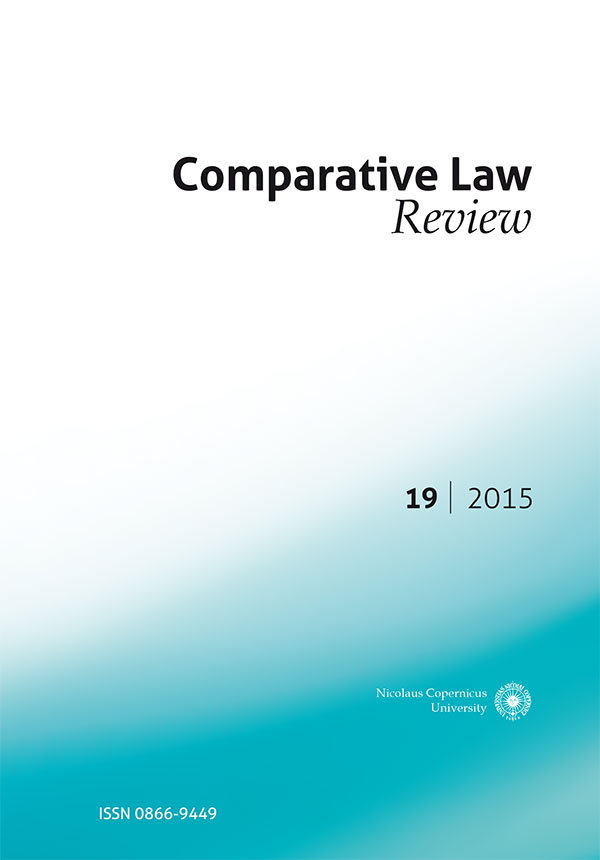Disclosure of Sensitive National Security Information during Civil Litigation in Poland and in the United States
DOI:
https://doi.org/10.12775/CLR.2015.004Słowa kluczowe
civil process, limitations of evidence, classified information, state secrets privilege, access to public informationAbstrakt
The purpose of the article is to compare the American evidentiary rule of “state secrets privilege” with the Polish regulation of Article 248 § 1 of the Code of Civil Procedure. This issue, in particular, gains importance in the light of legal changes that occurred in the USA and most developed countries in the aftermath of the 11th September 2001 attacks and the so-called “war against terrorism”. The author presents the genesis and evolution of the privilege, the history of its application, as well as doubts which it has aroused in terms of civil rights. The American solutions make up a point of reference for the Polish regulations of the Code of Civil Procedure. A dogmatic analysis of Article 248 § 1 of the Code offers a broad platform for discussions about its compliance with the Constitution of the Republic of Poland, as well as, noted legal loopholes in the law of civil procedure, in connection with the protection of classified information. The author underlines the fact that, after the regime transformation in Poland, the right to information gained the status of a public subjective right, but it had a very little impact on the shape of the civil process. He points to the implications of the fact that Polish legislators departed from the principle of objective truth in the process, for the sake of the principle of formal truth, commonly accepted in Western legal culture.Pobrania
Opublikowane
2016-01-20
Jak cytować
1.
DOBRZENIECKI, Karol. Disclosure of Sensitive National Security Information during Civil Litigation in Poland and in the United States. Comparative Law Review [online]. 20 styczeń 2016, T. 19, s. 77–97. [udostępniono 13.1.2026]. DOI 10.12775/CLR.2015.004.
Numer
Dział
Studies and articles
Statystyki
Liczba wyświetleń i pobrań: 501
Liczba cytowań: 0



